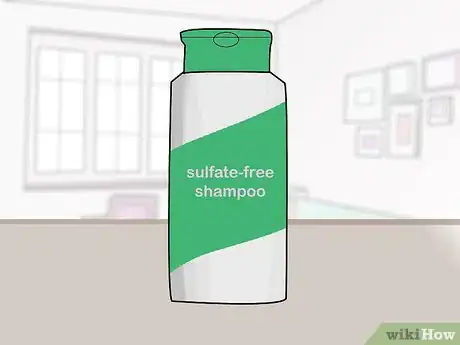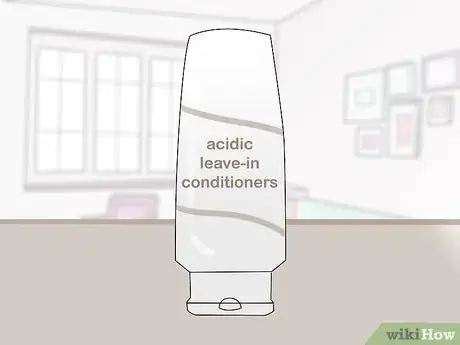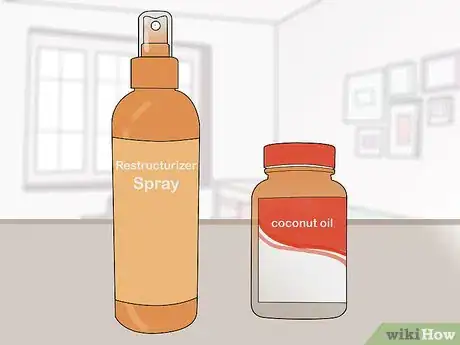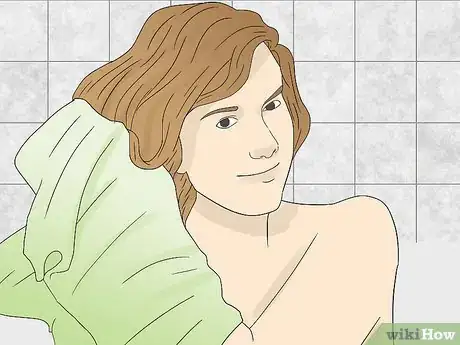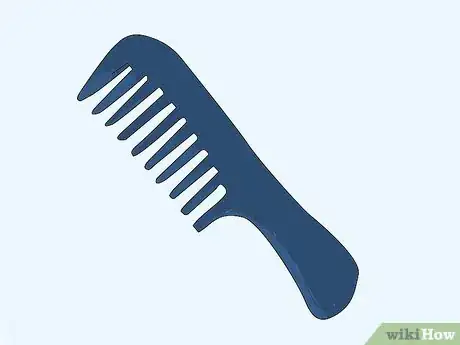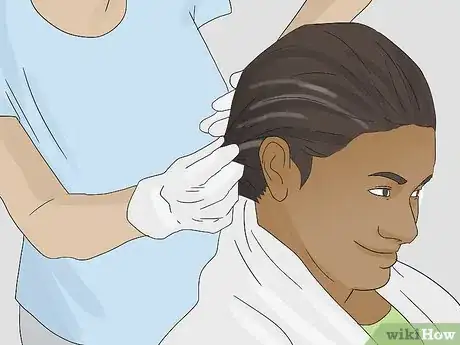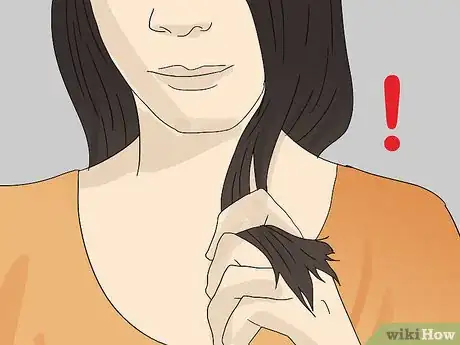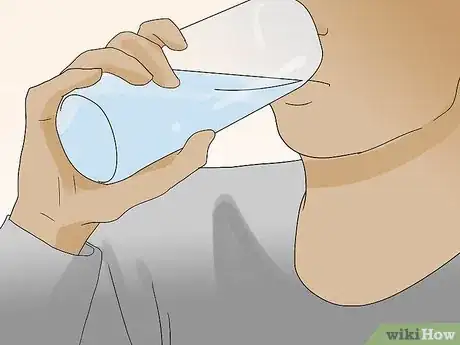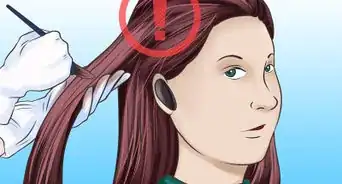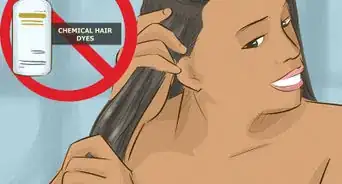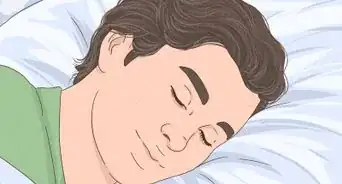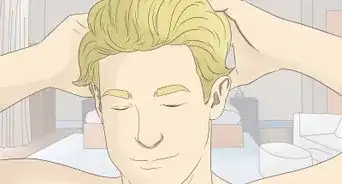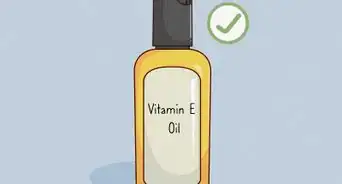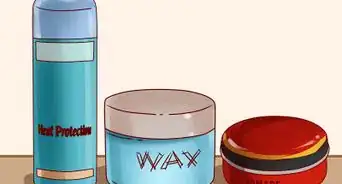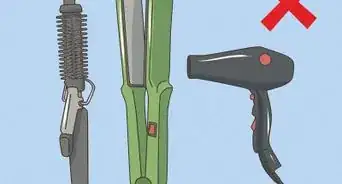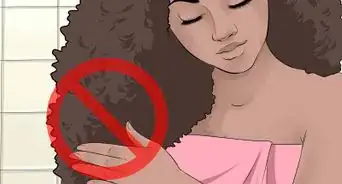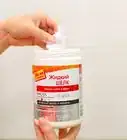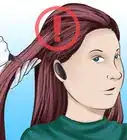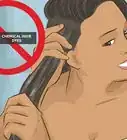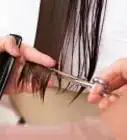This article was co-authored by Martin Nepton. Martin Nepton is a Professional Hair Stylist and Colorist at Bang Bang LA in Los Angeles, California. With over 11 years of experience, Martin specializes in helping clients express their Queer identity through hair. Martin offers personalized haircuts and color and style services with non-gender prices based on hair length. Martin holds a BA from the University of Québec at Montréal and is a Licensed Hair Stylist in California.
This article has been viewed 15,977 times.
Relaxed hair is often prone to frizziness or dryness. If you want to reduce the frizz in your relaxed hair, you’ll need to take special care during your hair maintenance routine. You should use sulfate-free shampoos and deep condition your hair regularly. Avoid dryness and breakage by protecting your hair from overexposure to the sun or other heat sources. Dry your hair carefully, and consult with your stylist about maintaining a healthy length for your hair.
Steps
Caring For Your Relaxed Hair
-
1Use sulfate-free shampoo. Sulfates are notorious for drying out hair. Using a sulfate-free shampoo on your relaxed hair can help combat the dryness and lead to less frizzy hair. These kinds of shampoos typically use natural oils (like coconut oil) as a base rather than a harsh cleanser.
- Look for ingredients like coco glucoside, lauryl glucoside, decyl glucoside, capryl glucoside, and disodium cocoyl glutamate.
- Consider using sulfate-free shampoos like World Clean Hair & Skin Cleaner, Nature Clean Pure-Sensitive Shampoo, or Yarok Feed Your Volume Shampoo.
-
2Try acidic leave-in conditioners. These kinds of products help keep your relaxed hair moisturized by closing the hair cuticles that are lifted by the relaxer process. Moisturized hair is less likely to be frizzy.[1]
- Look for products that include aloe vera juice, lactic acid, or citric acid to help tame the frizz on relaxed hair.
- You may also want to pick a shampoo with a slightly acidic pH to help restore the hair’s natural pH after a treatment.
-
1Moisturize your relaxed hair regularly. Frizzy hair is usually the direct result of dryness. To avoid this, try spraying your hair with a liquid product containing protein and amino acids – like Ouidad Botanical Boost or ApHogee Keratin & Green Tea Restructurizer Spray. Then add a moisturizing agent like coconut oil to seal in the moisture.[2]
- These products can be used as often as needed, whenever your hair seems frizzy or dry. Oils, creams, and leave-in conditioners can be used daily.
Preventing Damage and Frizz
-
1Avoid extended sun exposure. Overexposure to direct sunlight can lead to dry hair and frizz, especially with relaxed hair. Try to avoid being out in the sunlight for long periods of time to avoid the frizzy effects.[3]
- If you must go out into the sunlight for an extended period of time, try to wear a loose-fitting headscarf or hat to protect your hair from the damaging effects of the sun.
-
2Dry your hair carefully after showering. Vigorously rubbing your hair with a towel after showering can cause tangles and breakage that often leads to damaged and frizzy hair. Try gently squeezing the excess water out of your hair by twisting it slightly inside the towel, rather than rubbing your hands on it roughly.[4]
- Try using a clean cotton t-shirt instead of a bathroom towel to dry your hair. The fabric is much softer and gentler on your hair. This can help prevent breakage and frizz.
-
3Use a wide-toothed comb to prevent tangling. Brushing your hair can cause your strands to tangle up or break off. The smaller teeth of the brush apply too much pressure to your hair, and more breakage leads to more frizz. Instead, use a wide-toothed comb to comb through your hair and prevent tangles.[5]
- Small-toothed combs can be similarly damaging, so try to avoid these too.
Getting Extra Hair Help
-
1Get relaxers applied professionally. A relaxing product should only be applied by a professional, as improper application can lead to serious hair damage. Go to a professional salon with a qualified hairstylist, preferably one with good online reviews or recommendations from friends.[6]
- Chemical damage is more likely to occur if you relax your hair at home, leading to more breakage and, as a result, worse frizz in your hair.
-
2Monitor your hair length. If you let your relaxed hair get too long, the tension can cause it to break. More breakage means more frizz for your hair. Make sure to consult with your hairstylist about how often you need to cut your hair, or what length is best for maintaining healthy, strong strands.
- If you start noticing more breakage than usual, especially as a result of split ends, it might be time to consider a shorter haircut – or at least a trim.
-
3Take care of your body. A healthy body does a better job at producing healthy hair. Take care of your body and try to minimize the stress in your life in order to prevent frizzy relaxed hair.[7]
- This means that you should drink plenty of water and exercise regularly. You should also consider taking vitamin supplements like a daily multi-vitamin and an Omega-3 Oil.
References
- ↑ http://www.essence.com/galleries/straight-talk-hairlicious-inc-combatting-frizzy-relaxed-hair#498521
- ↑ http://blackgirllonghair.com/2014/06/5-easy-fixes-for-dry-frizzy-ends/
- ↑ http://www.essence.com/galleries/straight-talk-hairlicious-inc-combatting-frizzy-relaxed-hair#498516
- ↑ http://www.blackbeautyandhair.com/how-to-combat-breakage-in-relaxed-hair/
- ↑ http://blackgirllonghair.com/2014/06/5-easy-fixes-for-dry-frizzy-ends/
- ↑ https://www.matrix.com/blog/16-ways-to-restore-smoothness-and-shine-to-frizzy-hair
- ↑ http://thirstyroots.com/how-to-maintain-short-relaxed-hair.html
